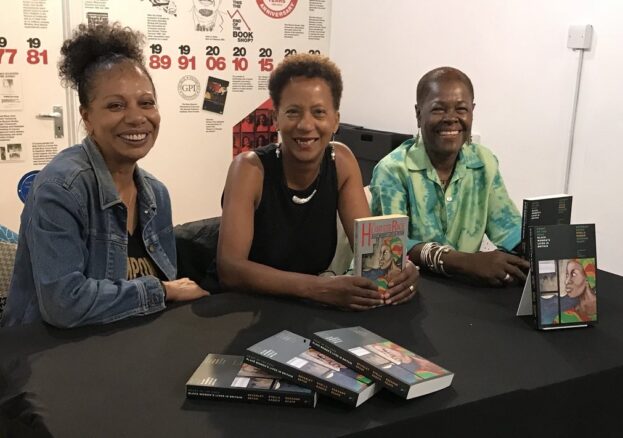
The Organisation of Women of African and Asian Descent (OWAAD) was a pioneering feminist group that emerged in the UK in the late 1970s. Founded by a group of black and Asian women who felt that their experiences were not adequately represented in the mainstream feminist movement, OWAAD sought to empower women of colour and challenge the intersecting systems of oppression they faced due to their race, gender, and class. The group placed a strong emphasis on activism, community organising, and political education, and was involved in a number of campaigns and initiatives aimed at improving the lives of women of colour in the UK.
OWAAD was part of a wider movement of black and Asian feminism that emerged in the UK during the 1970s and 1980s. The group was founded by Stella Dadzie, Suzanne Scafe, and other black and Asian women who felt that their experiences were not being represented in the mainstream feminist movement. The group was formed at a time when mainstream feminism in the UK was primarily concerned with issues affecting white women. OWAAD sought to challenge this narrow focus and draw attention to the unique experiences of women of colour, who faced additional forms of discrimination and marginalisation.
One of the key issues OWAAD addressed was the intersection of race and gender. The group argued that racism and sexism were intertwined and that women of colour faced a “double burden” of oppression that was not adequately recognised by the mainstream feminist movement. OWAAD produced a number of influential publications, including the book “Heart of the Race: Black Women’s Lives in Britain” (1985), which documented the experiences of black women in the UK. The group was also involved in the publication of the journal “Sisterhood” and the anthology “Charting the Journey: Writings by Black and Third World Women” (1988).
OWAAD organised conferences, meetings, and workshops to raise awareness about the specific issues faced by women of colour, such as racism, sexism, and economic inequality. The group placed a strong emphasis on activism and community organising, seeing political education and grassroots mobilisation as essential tools for effecting social change. In addition to its publications and events, OWAAD was involved in a number of campaigns and initiatives. These included campaigns against police violence and deportations, as well as efforts to improve access to healthcare and housing for women of colour.
OWAAD was active until the mid-1980s when it dissolved due to internal conflicts and political changes in the UK. However, the group’s legacy continues to inspire and inform feminist activism today, particularly in the areas of intersectionality and anti-racism. OWAAD was a pioneering force in the development of intersectional feminism, which recognises that different forms of oppression (such as racism, sexism, and classism) intersect and compound each other. The group’s work remains an important part of the history of women’s rights and social justice in the UK.
